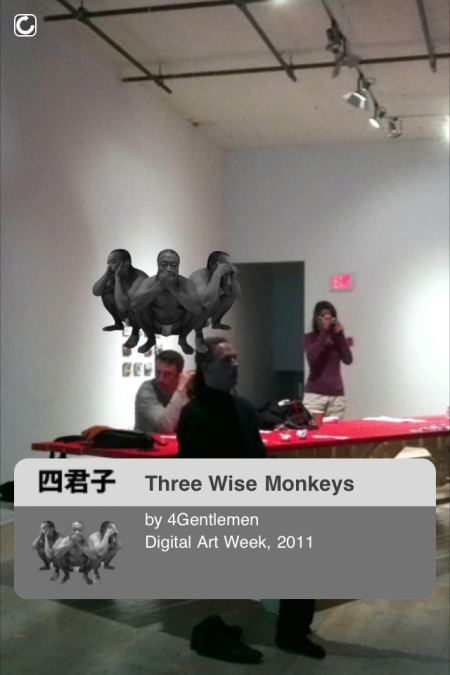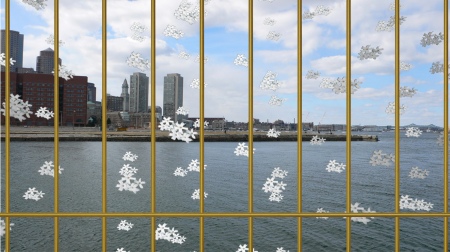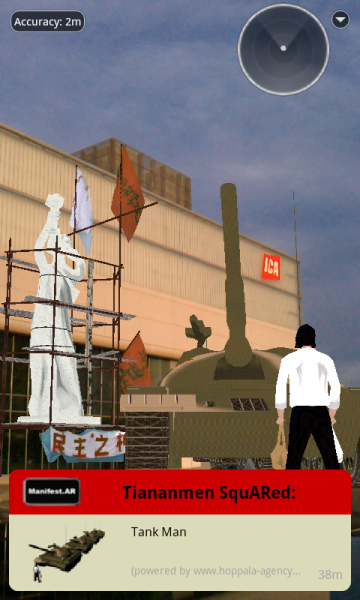Open Letter to the National People’s Congress from the Organizers of the Chinese Jasmine Rallies
First, we would like to thank every participant of the Jasmine Rallies. Your participation has already made the authoritarian government very nervous. Your presence has made the Chinese government understand that they must choose between these two paths:
The Chinese government will genuinely fight corruption and accept the supervision of the people.
Suppress popular protest, continue corruption, and continue to refuse the supervision of the people.
Every Chinese person with dreams hopes that China will become prosperous, rich, and powerful, that the people will not have to worry about food and clothing, that the government is upright and honest, and that the judiciary is impartial and just. But twenty years have passed [since the 1989 Democracy Movement], and what we are witnessing is a government that grows more corrupt by the day, government officials who collude with vested interests, and a citizenry that has not benefitted from the reform, opening up, and economic development. On the contrary, the people have to endure high goods and housing prices, and do not have health care, education, or benefits for the elderly. And what about ten years from now? Will we face a government even more corrupt? A judicial system even more opaque? Will vested interests give up their vested interest?
Every good and honest Chinese person, please think: So much public housing has been sold to individuals, so many state-owned enterprises and so much land have been sold, and nearly all state-owned property has been sold off. But where has all the money from these sales gone? It goes without saying that state-owned property belongs to the entire people. But what did the people get? Led by an authoritarian regime, the opaque process of privatization has made a small number of people rich, but what did the vast number of ordinary people get?
Every good and honest Chinese person, please think: When Japan, Korea, and Taiwan were in the process of industrializing, they were able to make the overwhelming majority of their people prosperous. Why is it that during China’s industrialization the ordinary people are becoming poorer? Why is it that in just the last few decades China has gone from being a country with the smallest gap between the rich and the poor to one with the largest? It is because the unfair system has made a small number of people incredibly wealthy, and the vast majority of people remain poor.
Every good and honest Chinese person, please think: Every year the government uses public money to eat and drink, buy cars, visit foreign places, and raise salaries for officials; yet it doesn’t have money to spend on health care, education, benefits for the elderly, or other basic needs. The vast majority of Chinese people do not have basic health care, education, or benefits for the elderly. Not to mention Europe, America, Japan, or Korea; our welfare system is far behind those of India, Russia, or Brazil. When other countries use the majority of their tax money for the welfare of their people, where does our tax money go?
Every good and honest Chinese person, please think: At present the renminbiranks first among world currencies in terms of quantity in circulation. This serious “over-issuing” of currency has brought about a vicious cycle of inflation inside China. The excessive printing of currency is recklessly diluting the value of the people’s wealth. Because the renminbi is not an international currency, it is China’s ordinary citizens who are out of luck. The meager income of China’s ordinary people must support goods and housing prices similar to those in Europe and America. On the one hand the government excessively prints money, and on the other hand it uses administrative means to keep housing prices low is this some sort of mockery?
Every good and honest Chinese person, please think: It is a matter of course that officials, when disclosing their wealth, should accept the supervision of the people, and that the government, when publishing details of tax revenues, should accept the supervision of the people. However, the Chinese people have no such power. We have been waiting for decades. Even if we wait for another ten years, we will not be able to get this kind of power. Should we keep on waiting? Are you willing to wait another 10 years, 20 years, 30 years?
In short, without pressure from the people, absolutely no authoritarian government would take the initiative to respect the people or accept the people’s supervision. What we need to do now is to put pressure on the Chinese ruling party. If the party does not conscientiously fight corruption and accept the supervision of the people, then will it please exit the stage of history. We call upon each Chinese person who has a dream for China to bravely come out to take an afternoon stroll at two o’clock on Sundays to look around. Each person who joins in will make it clear to the Chinese ruling party that if it does not fight corruption, if the government does not accept their supervision, the Chinese people will not have the patience to wait any longer.
We do not necessarily have to overthrow the current government. As long as the government fights corruption, the government and officials accept the people’s supervision, the government is sincere about solving the problems regarding judicial independence and freedom of expression and gives a timetable, we can give the ruling party time to solve the problems. We can call a stop to the strolling activities. We have been waiting for decades, if the government is sincere about solving the problem, we do not mind waiting a little longer. However, if the government is not sincere about solving the problems, but only wants to censor the Internet and block information to suppress the protests, the protests will only get stronger. As more and more people find out about “jasmine rallies,” there will definitely be more and more Chinese people joining in.
We don’t care if we implement a one party system, a two party system, or even a three party system; but we are resolute in asking the government and the officials to accept the supervision of ordinary Chinese people, and we must have an independent judiciary. This is our fundamental demand.
We do not support violent revolution; we continue to support non-violent non-cooperation. We invite every participant to stroll, watch, or even just pretend to pass by. As long as you are present, the authoritarian government will be shaking with fear.
China belongs to every Chinese person, not to any political party. China’s future will be decided by every person. We ask that the government and officials accept the supervision of the people, that the details of tax collection be published, and that taxes are genuinely “collected from the people, and used for the people.” These basic requests are not the least bit excessive. For our country’s future, for the fundamental rights of our children and future generations, please bravely come out. The Chinese people’s thirst for freedom and democracy is unstoppable (as Wen Jiabao said during an interview on CNN).
If you are unable to participate in the strolls, please tell every Chinese person near you: We need an upright and honest government. We need the right to supervise government tax collection. We need the right to scrutinize officials’ wealth. We need the right to publicly criticize the government. These are the fundamental rights of every Chinese person. Please tell every Chinese person near you: Non-violent non-cooperation is the only path for Chinese democratization. Please use word-of-mouth to break through the news blackout and come show your support.
The Chinese people rely on themselves to fight for their rights. We should not even dream that an authoritarian regime would take the initiative to award us these rights. Please join us in non-violent non-cooperation to make the Chinese government respect the basic rights of the Chinese people.
Time: Every Sunday starting on February 20, 2011 at 2 pm. (If the Chinese government is sincere about solving problems such as corruption and public supervision, we will send out a notice stopping the action.)
Rally Locations:
Beijing: in front of the McDonald’s on Wangfujing Street
Shanghai: in front of Peace Cinema at People’s Square
Tianjin: below the Drum Tower
Nanjing, [Jiangsu Province]: the entrance of Silk Street Department Store at the Drum Tower Square
Xi’an, [Shaanxi Province]: the entrance of Carrefour on Beida Street
Chengdu, [Sichuan Province]: under the Statue of Chairman Mao at Tianfu Square
Changsha, [Hunan Province]: the entrance of Xindaxin Building at Wuyi Square
Hangzhou, [Zhejiang Province]: the entrance of Hangzhou Department Store at Wulin Square
Guangzhou, [Guangdong Province]: in front of the Starbucks at the People’s Park
Shenyang, [Liaoning Province]: in front of the KFC at North Nanjing Street
Changchun, [Jilin Province]: in front of Corogo Supermarket at Democratic Avenue of West Culture Square
Harbin, [Heilongjiang Province]: in front of Harbin Cinema
Wuhan, [Hubei Province]: in front of the McDonald’s at Jiefang Avenue and the World Trade Plaza
People who are in cities not listed here, please go to the central square of your city.
We ask websites to help spread this statement, thank you!
One of the organizers of China Jasmine Rallies (Posted
on Boxun by a friend on February 21, 2011.)

















































